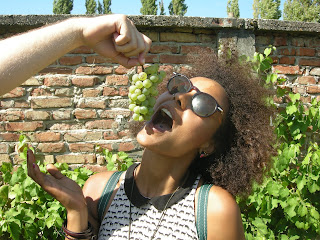Social Eco-Agriculture as a new value for small-scale farmers in rural areas
Peter is an enthusiastic entrepreneur who discovered his love for agriculture only after having worked as a sales manager and having realized that there are more meaningful things to do in live. He is now managing our project partner UEZ, offering educational and entrepreneurial projects and producing biodynamic crops for the local community. He is passionate about bringing young people together, living for a sustainable future and talking about the success stories of his biodynamic gardening.
He shares their idea about the concept of a Social Eco-Agriculture that empowers small-scale farmers in rural areas:
The republic of Croatia is a touristic and
agriculture country. Agriculture land is one of the main countries natural and
economic resources and the structure of the land is not suitable for
conventional agriculture but is perfect for ecological agriculture. Yet
ecological grown vegetables for example, takes place to only 0,6 % of
agriculture land.
The small-scale farm model that will be implemented next year can be easily applied to every small-scale farm (agriculture
household) regardless of the property size, education, age or gender of householders, social
status etc… Agrotechnology is expensive and not available to everybody, and
organic agriculture with combined methods of bio-dynamic and bio diversity
respects natural processes and cycles and it is not as expensive.
-
The model of social eco-agriculture farms
is a direct fight against poverty in Croatia. Inactive population, unemployed,
financially blocked and poorly populated are mainly the population of small-scale
agricultural households that are increasingly adjusted to poverty and social
exclusion. Innovative model of managing small-scale farms, besides growing food
for the households will be economically approved for additional income to the
household
-
Conventional
agriculture with monoculture is 80 % of global pollution that causes climate
change. With our combined models of bio-dynamic and biodiversity in small-scale
farms, which are 50,7 % of agriculture farms altogether, if applied and copied,
will have a great impact on recovering the soil and reducing the pollution.
-
Practical
knowledge from the output will be used by agricultural education systems as a
practical addition to theoretical education and will be implemented into the
formal education system of our affiliated partners through specific classroom
hours and practical work on the field, as well as small-scale farmers and
households in rural areas who want to gain the opportunity for additional
earnings.
You can always pass by and visit our micro farm to find out more!
A few pictures of Peter and his activities with youth in the garden:









Comments
Post a Comment